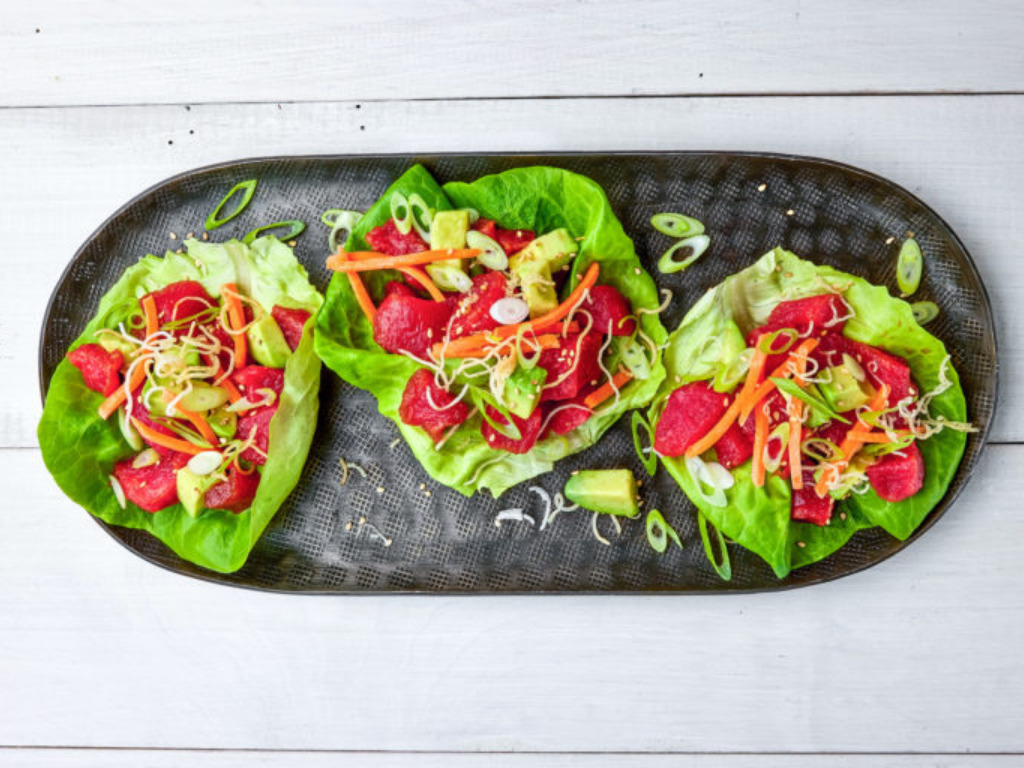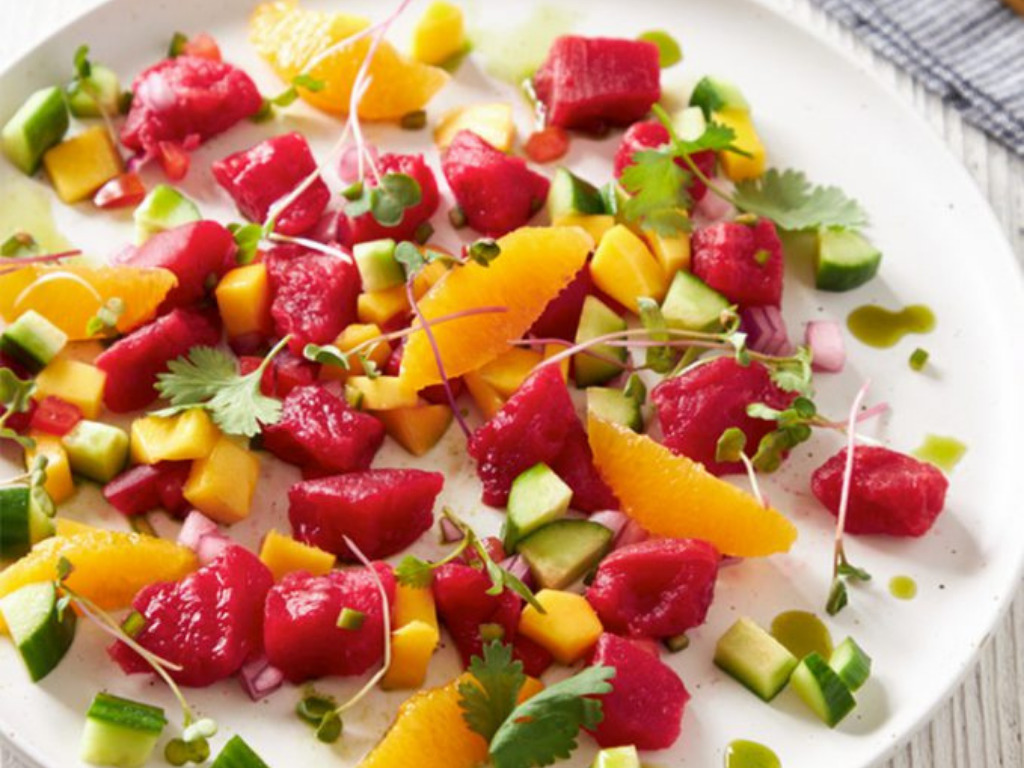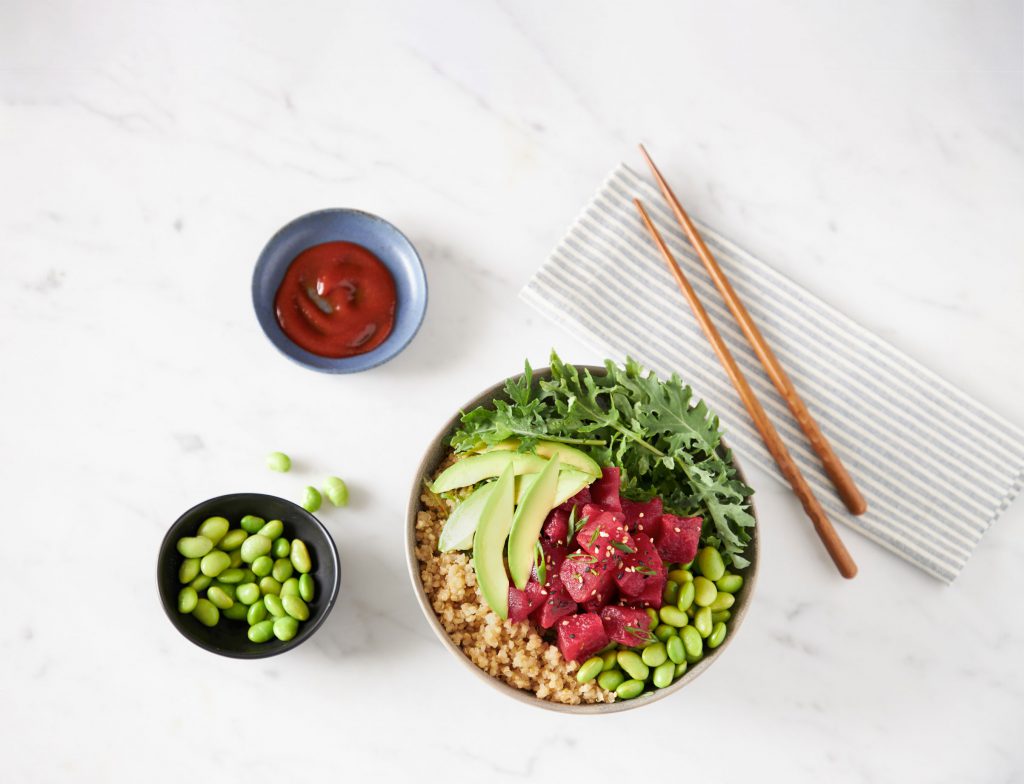3 Mins Read
Californian alternative seafood startup Finless Foods has closed a $34 million funding round ahead of specialist facilities construction. The round was led by Hanwha Solutions, with Dainichi Group, At One Ventures and Sustainable Ocean Alliance all participating. The sustainable seafood company already manufactures plant-based tuna analogues out of Emeryville, which it plans to release to the U.S. market later this year. Initial launch will be through foodservice partners,in time for the summer tuna rush.
With new funding in place, Finless will now seek to progress cultivated bluefin tuna in an 11,000 square-foot pilot production plant, ready for regulatory approval and consumer release. To date, Finless has secured close to $48 million in funding since its inception in 2017.

The scale of future fish
The new production facility will dramatically increase Finless’ capacity. “This doubles the size of our current location and almost quadruples the size of our current (research and development) space,” Michael Selden, co-founder and CEO of Finless told Forbes.
The plant-based tuna is being manufactured close to company headquarters in Emeryville, Calif., in a bid to reduce carbon footprints. Designed to look, feel, taste and work like regular tuna, it is a composition of vegetable ingredients. The cultivated development will be a precise dupe for caught tuna. “… Our cell-cultured bluefin tuna is on a cellular level the same as bluefin tuna on the market today, Shannon Cosentino-Roush explained to Forbes. “The difference is that instead of catching a wild-bluefin for your sushi, cell-cultured bluefin tuna is produced by growing out a sample of bluefin tuna cells in a microbrewery-esque production facility, resulting in cuts of bluefin tuna that can be prepared, served and consumed just like with any other popular dish.”
Both the plant-based and cultivated tuna releases are being perfected to satisfy the craving for bluefin tuna, without the aftertaste of commercial overfishing or heavy metal toxicity. Finless has stated that fast and chef-casual restaurants will be the main target partners, with supermarkets, colleges and entertainment venues being added as rollout progresses. “At launch, our pricing will be a slight premium to wild-caught tuna with the goal to achieve price parity thereafter,” Selden commented. “We expect to be competitive to other plant-based tuna in the market immediately.”
Finless has taken the unusual step of developing both plant-based and cultivated options to cater to the full spectrum of tuna eaters, thereby making the greatest impact on marine ecosystems. Its mission is to ensure the oceans can thrive. To ensure this, a board is in place that includes Mike Sutton, of the Marine Stewardship Council and Jack Kittinger, leader of the Conservation International Global Fisheries and Aquaculture Program. Alongside, investors who share a sea-based stewardship mentality are driving the vision of future-friendly seafood forward. “As Finless launches its first products, we are proud of their substantial technical and business progress, and look forward to a world where tuna populations can recover worldwide,” Tom Chi, managing partner of At One Ventures said in a statement.

Tuna on every menu
The tuna race is officially on, with numerous brands announcing new developments, imminent releases and future plans. Last month, fellow Californian-startup Impact Food announced a soft launch of its plant-based tuna analogue that is slated as being a taste and texture comparable alternative to the real thing. An authentically flakey mouthfeel is claimed to be a USP, along with an improved nutritional profile.
Elsewhere, San Francisco company Current Foods brought plant-based whole-cut tuna and smoked salmon to consumers. NotCo, who recently partnered with Kraft Heinz, announced plans in January to tackle the tuna and salmon markets with its AI food development platform. The move follows success with beef and chicken.
All photos by Finless Foods.





